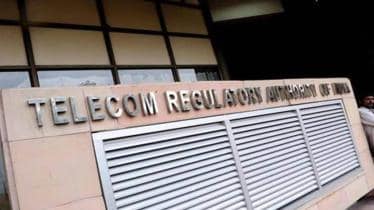In a bid to tackle spam calls and messages, the telecom regulator has proposed to revamp the Telecom Commercial Communications Customer Preference Regulations, 2018. Jatin Grover takes a look at the draft norms, recent directions to curb pesky calls and SMSes and the apprehensions of telcos
l Review of current norms
EVEN AS THE Telecom Regulatory Authority of India (Trai) mandates the ‘140’ series of phone numbers for promotional calls, at the heart of the problem are the spam calls and SMSes from 10-digit mobile numbers which lead to financial frauds. In the proposed regulations, it suggested differential tariffs for SMS and voice calls made beyond a certain number. It proposed that telecom subscribers making over 50 calls or sending out even 50 SMS daily should be seen as pesky callers.
Differential tariffs may make commercial communication using 10-digit numbers unviable for unregistered telemarketers and force them to adopt distributed ledger technology (DLT) where consent is mandatory, Trai said. It is also exploring ways to use AI-based unsolicited commercial communication (UCC) detection systems including training of AI models for identification, detection and prevention of spam. Trai is also looking at mandating explicit consent of users for promotional communications, process to be followed to scrub such content before the delivery to consumers, redressal of consumer complaints, proactive actions to stop spams and fines for any violations.
l Whitelisting links in messages
TRAI HAS PROPOSED that telemarketers should inform the telcos in advance for using auto-dialer or robot-calls for commercial communication and also seek user consent. To prevent pesky SMSes, it recently asked telcos to permit only whitelisted URLs/ APKs /OTT links in the SMSes sent for promotional purposes. The deadline for this is October 1. Whitelisting means the enterprises will have to register the SMS headers, call-back numbers and URLs in those SMSes, with the telcos. Then telcos will feed the same in their DLT platform, which will allow passage of SMSes with verified links. Telemarketing calls starting with the 140-series have to be migrated to an DLT platform or on blockchain by September 30 for better monitoring. Besides, the trail of all messages from senders to recipients must be traceable from November 1.
l Penalties in the pipeline
AS PER THE draft regulations of Trai, if telecom operators are found to have failed to take action against the unregistered senders, they will be liable to pay Rs 10,000 per instance if the sender belongs to the individual category of telecom consumers and Rs 1 lakh per instance if from the enterprise category of telecom consumers. The telecom regulator said if the access provider is found to have misreported the count of UCC, it will have to pay Rs 5 lakh penalty per licenced service area (LSA) for each month.
The total amount payable as financial disincentives shall not exceed Rs 50 lakh per calendar month per LSA for telcos, according to Trai’s draft regulations. The proposed financial penalties on registered telemarketers for failing to curb spam communication start at Rs 1,000 per valid complaint, Rs 5,000 per registration not done in accordance with the rules, and Rs 1 lakh per misuse of number series assigned for transactional calls.
l Key statistics on spam calls
IN CASE TRAI decides to implement differential tariffs for calls and messages beyond a certain limit, it won’t affect most consumers, industry experts say. This is because, according to January-March quarter data shared by telecom operators with Trai, 99.38% of the 1.16 billion telecom subscribers send less than or equal to 10 SMSes per day per SIM. Only 3,64,127 (0.03% of total subscribers) send 51 to 100 SMSes per SIM per day, whereas only 47,427 (0.004% of total subscribers) send more than 100 SMSes per SIM per day.
As per a recent survey by LocalCircles, 76% of the 41,000 respondents claimed that they get three or more promotional or spam SMSes on their phone every day. Financial services and real estate companies top in spam calls and messages. Earlier this week, Trai said it has blacklisted over 50 entities and disconnected more than 275,000 mobile numbers/ telecom resources including unregistered telemarketers (UTMs) between January and June 2024.
l What telcos are saying
THE CONCERN OF telcos and other stakeholders is mainly on the whitelisting norm, which may cause delay in receipt of one-time password (OTP) related messages by mobile users. This is because banks and other entities will have to register the content of SMSes with telcos before sending any message. According to industry executives, these OTPs and other links in SMSes are generated in real-time and the same can not be registered with telcos.
Telcos also want the government to enforce traceability and user privacy rules on OTT apps to curb spam and illegal activities. This is because the majority of messaging traffic has moved to data networks from SMS, according to telcos.
Lately, telecom operators have been saying that the Trai norms on quality of services are too stringent. They say the same will increase their compliance burden without ensuring much benefit for subscribers.
